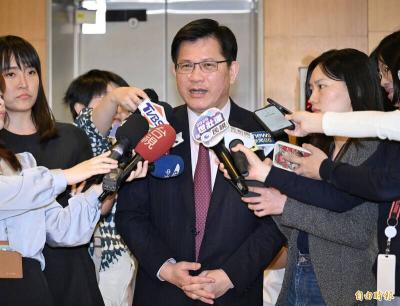The third round of talks between Taiwan and China later this month on a proposed economic cooperation framework agreement (ECFA) is expected to produce a clear draft of an “early harvest” list of products and services for tariff concessions, a finance official said yesterday.
Negotiations on financial services between the two sides will be held ahead of the third round of ECFA talks, the official said.
A panel of experts, commissioned by the Ministry of Finance’s Department of Customs Administration, has been in consultation with its Chinese counterparts on the details of place-of-origin regulations for imported products, the official said.
The issue includes rules on “substantial transformation” of a product, added value tax rates and changes in the customs tariff codes, the official said.
“Substantial transformation” refers to the extent to which a product is substantially changed after being imported for a specific manufacturing or processing purpose.
At present, the added value rate in Taiwan is 35 percent, but under an ECFA, a different rate will be applied to imported goods that are included in the early harvest lists, based on the characteristics of the products.
Taiwan and China will also discuss imposing new regulations on imported textile products in an effort to stop illegal shipments of textiles that have falsified country-of-origin information to avoid duties.
During the second round of ECFA talks last month, Chinese negotiators requested that 700 items be put on the early harvest list, said the official, who added that in the next round of negotiations, “China is unlikely to propose that many items.”
“The list will be acceptable to Taiwan,” because China has promised to make concessions so that Taiwan’s small and medium-sized enterprises (SMEs) would benefit; it is therefore unlikely that China would make requests that could negatively affect SMEs, the official said.

Taiwan would welcome the return of Honduras as a diplomatic ally if its next president decides to make such a move, Minister of Foreign Affairs Lin Chia-lung (林佳龍) said yesterday. “Of course, we would welcome Honduras if they want to restore diplomatic ties with Taiwan after their elections,” Lin said at a meeting of the legislature’s Foreign Affairs and National Defense Committee, when asked to comment on statements made by two of the three Honduran presidential candidates during the presidential campaign in the Central American country. Taiwan is paying close attention to the region as a whole in the wake of a

Chinese Nationalist Party (KMT) Chairman Eric Chu (朱立倫), spokeswoman Yang Chih-yu (楊智伃) and Legislator Hsieh Lung-chieh (謝龍介) would be summoned by police for questioning for leading an illegal assembly on Thursday evening last week, Minister of the Interior Liu Shyh-fang (劉世芳) said today. The three KMT officials led an assembly outside the Taipei City Prosecutors’ Office, a restricted area where public assembly is not allowed, protesting the questioning of several KMT staff and searches of KMT headquarters and offices in a recall petition forgery case. Chu, Yang and Hsieh are all suspected of contravening the Assembly and Parade Act (集會遊行法) by holding

President William Lai (賴清德) has appointed former vice president Chen Chien-jen (陳建仁) to attend the late Pope Francis’ funeral at the Vatican City on Saturday on his behalf, the Ministry of Foreign Affairs said today. The Holy See announced Francis’ funeral would take place on Saturday at 10am in St Peter’s Square. The ministry expressed condolences over Francis’ passing and said that Chen would represent Taiwan at the funeral and offer condolences in person. Taiwan and the Vatican have a long-standing and close diplomatic relationship, the ministry said. Both sides agreed to have Chen represent Taiwan at the funeral, given his Catholic identity and

Taiwan would welcome the return of Honduras as a diplomatic ally if the next president of that country decides to make such a move, Minister of Foreign Affairs Lin Chia-lung (林佳龍) said today. “We would welcome Honduras if they want to restore diplomatic ties with Taiwan after their elections,” Lin said during a legislative hearing. At the same time, Taiwan is paying close attention to the Central American region as a whole, in the wake of a visit there earlier this year by US Secretary of State Marco Rubio, Lin said. Rubio visited Panama, El Salvador, Costa Rica and Guatemala, during which he